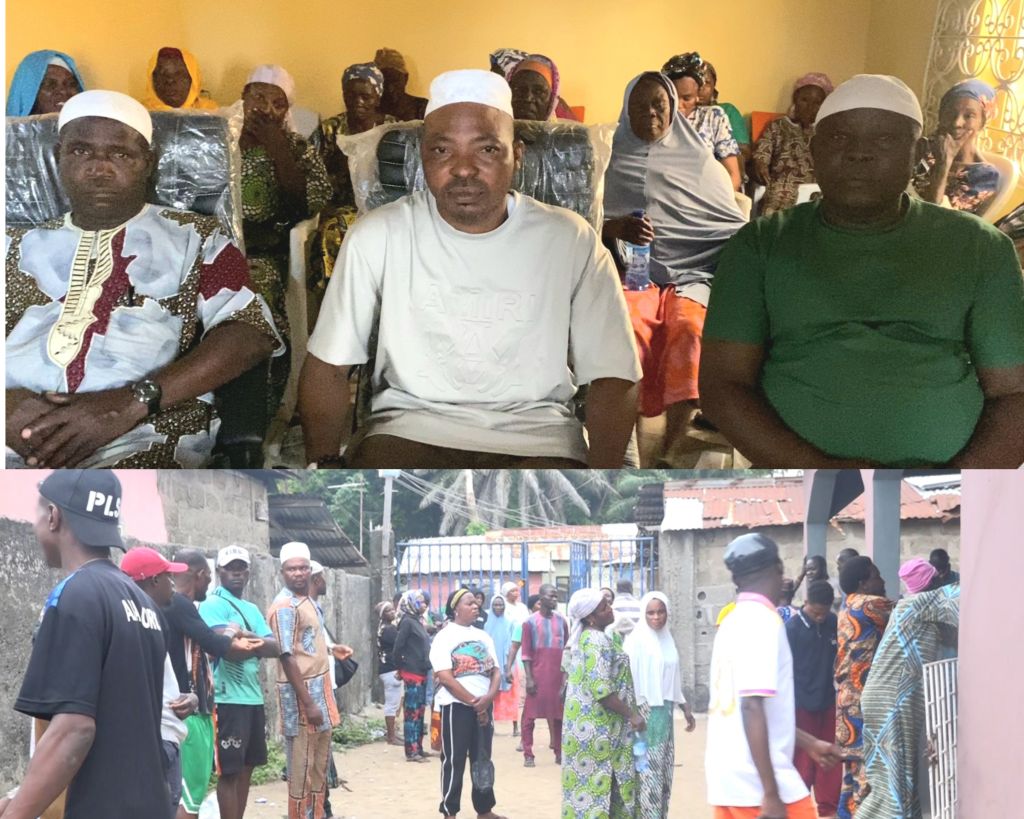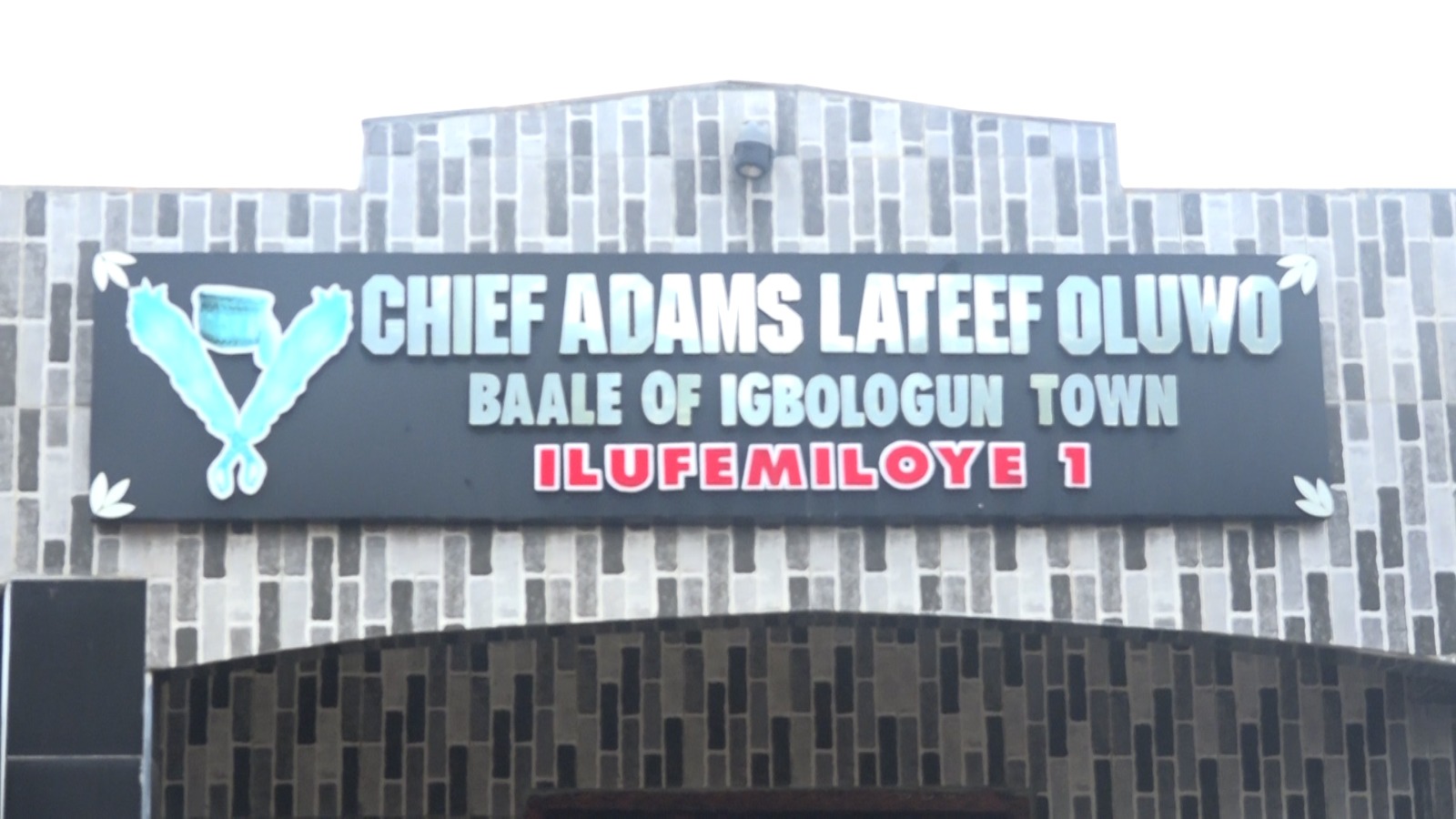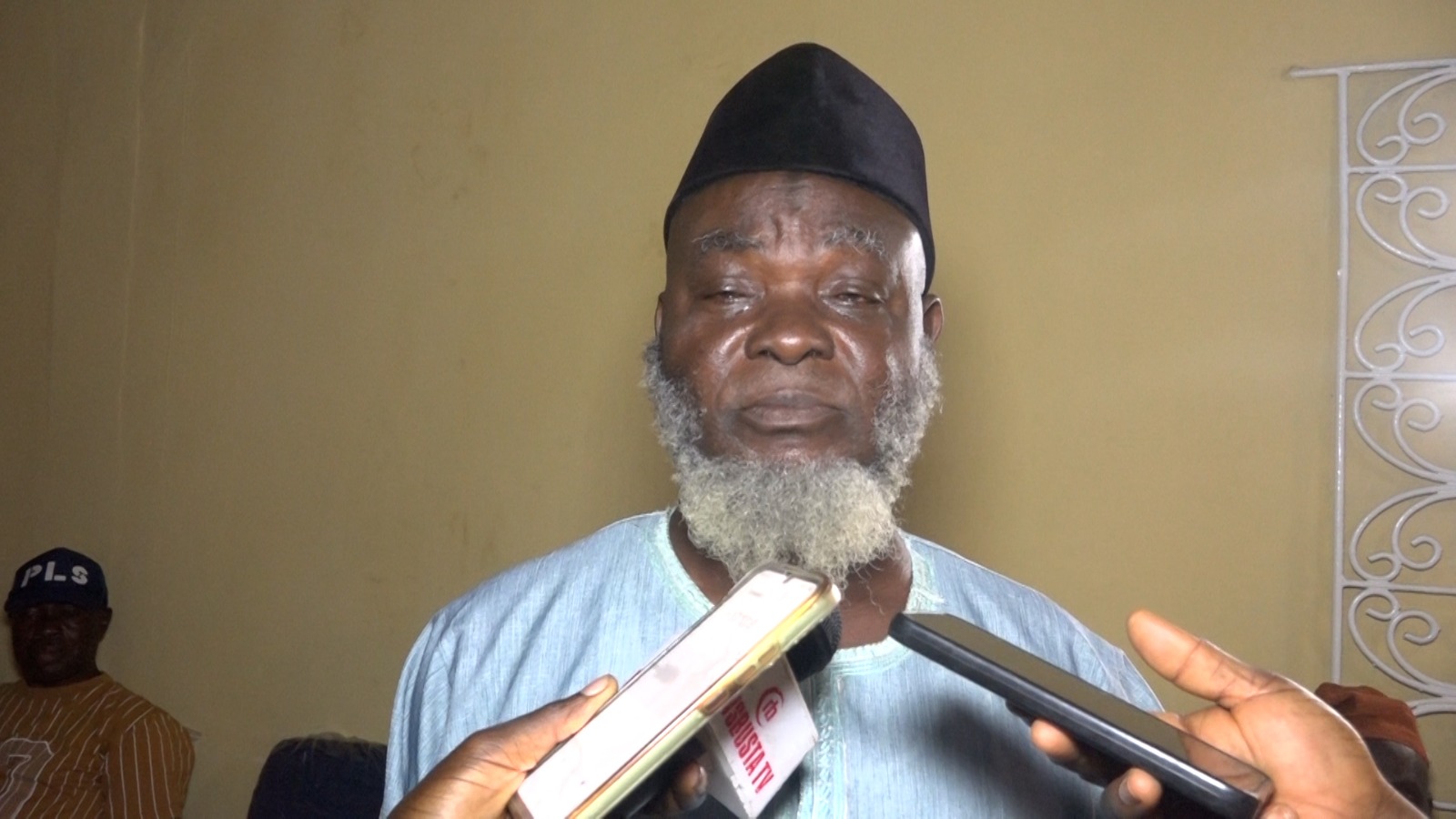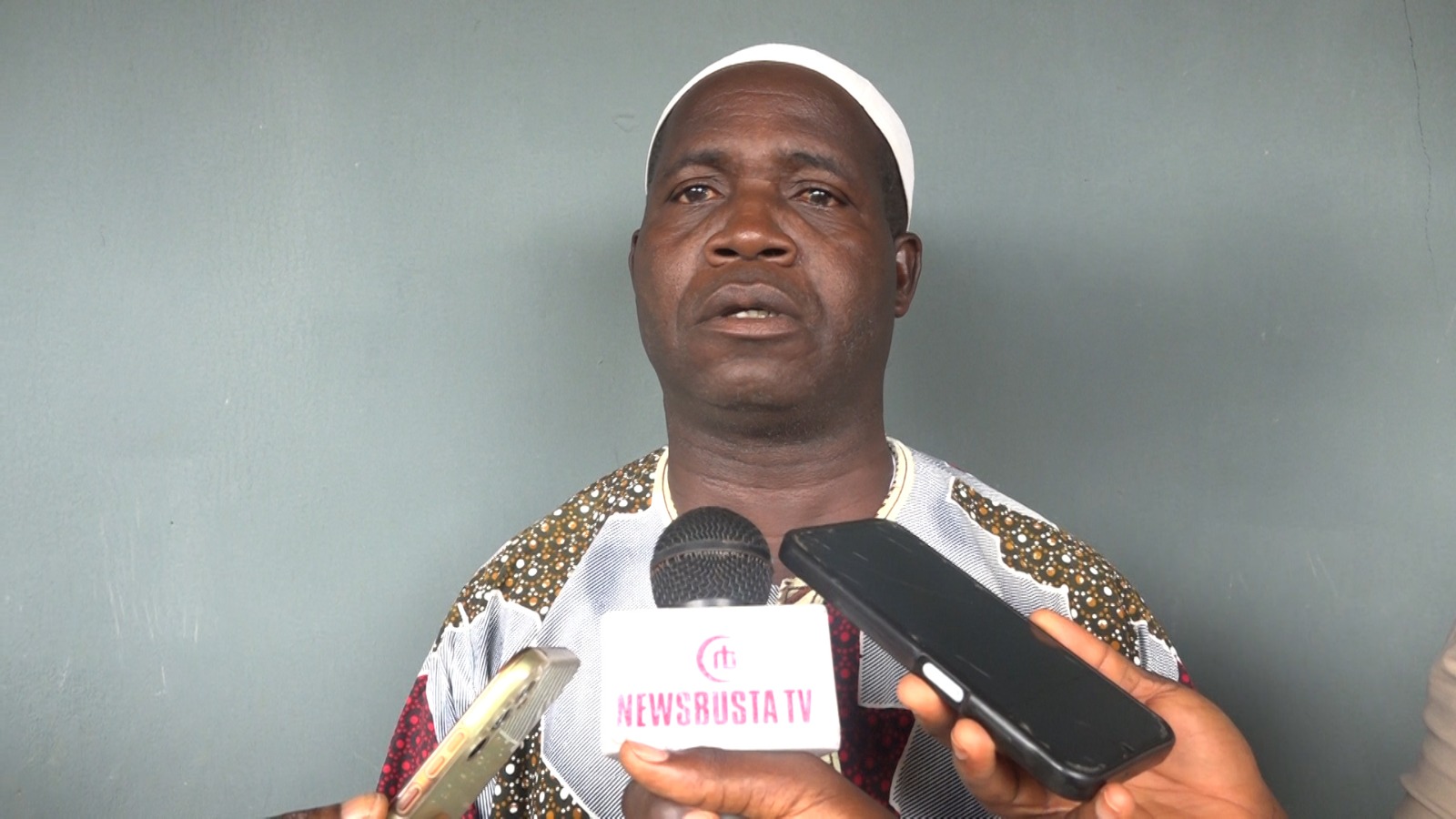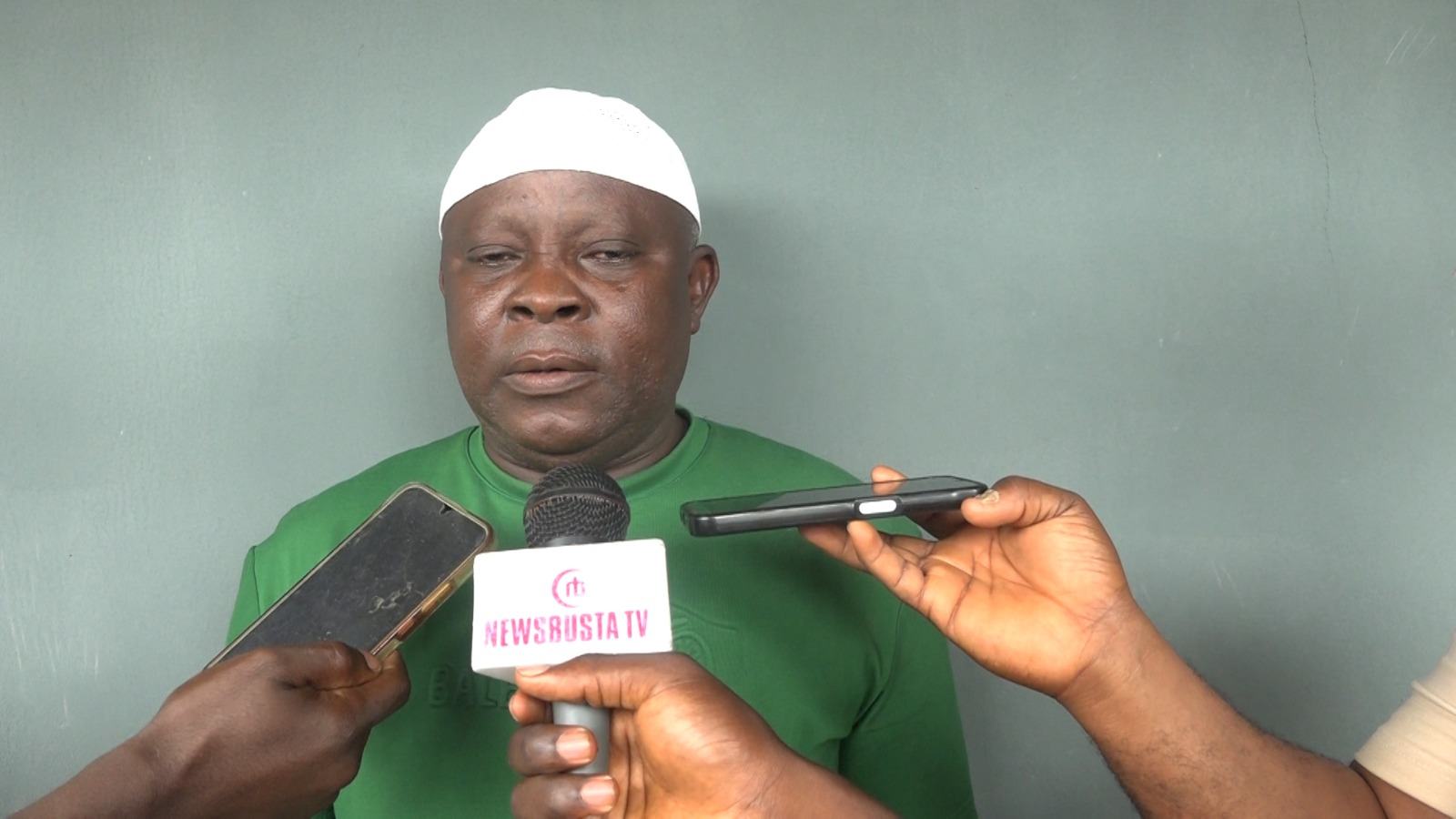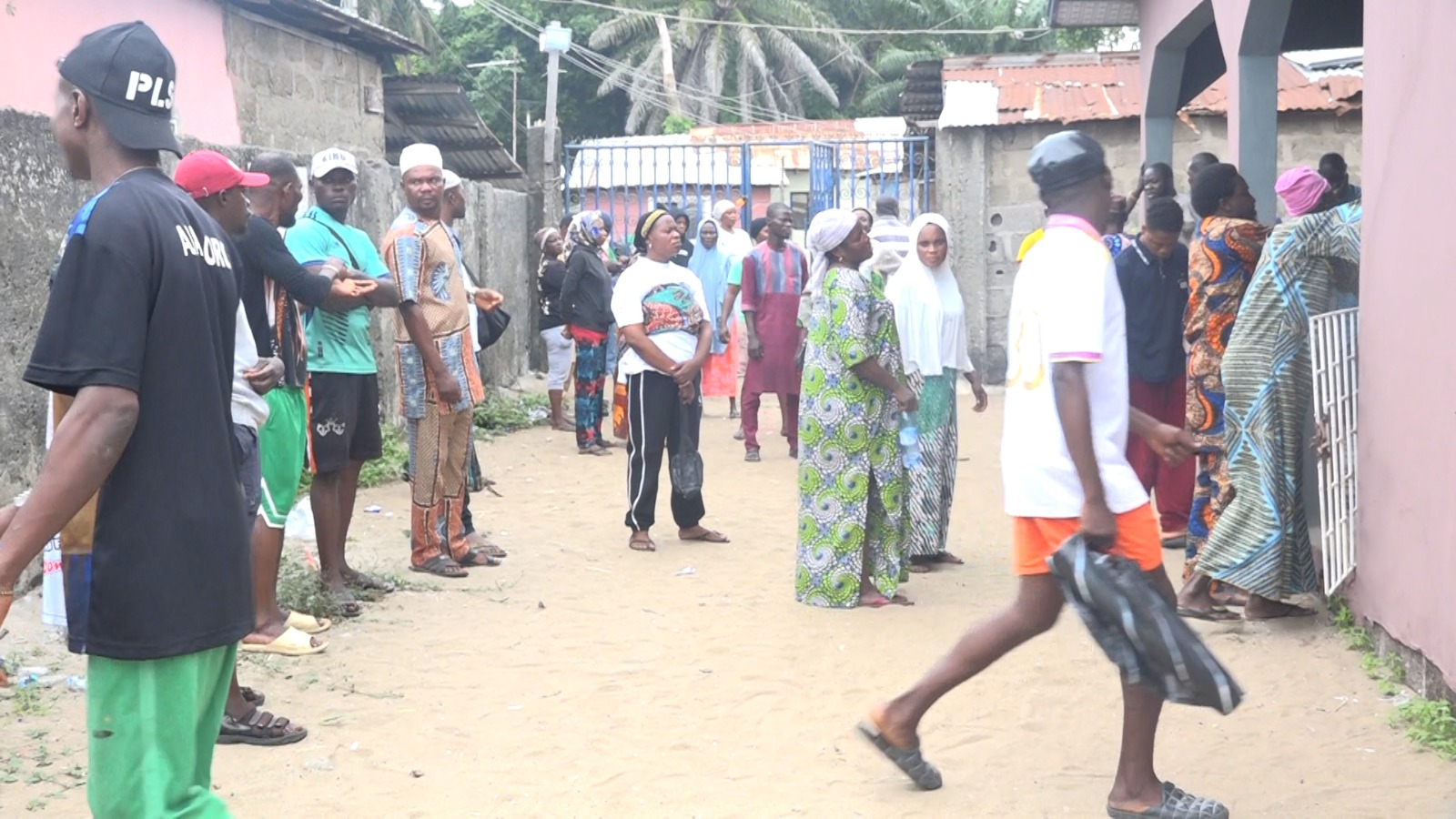Tensions Rise in Igbologun as Community Leaders Reject Alleged Imposition of Baálè by Ọba Olú-Ìwà of Apapa
By People’s Voice Nigeria News
A wave of resistance swept through the Igbologun Community Townhall in Amuwo Odofin Local Government area today as traditional leaders, religious figures, and residents from three historic Lagos communities; Igbologun, Igboeseyore, and Igbosu gathered to denounce what they described as an unlawful attempt by Ọba Moruf Oyekunle Atanda Amodu-Tijani Olúwa, the Olú-Ìwà of Apapa Kingdom, to impose a Baálè on their Land. The People’s Voice Nigeria can report.
The press briefing, held in the heart of Igbologun, spotlighted a decades-long land dispute that has remained unresolved in court since 1998, and the communities’ firm rejection of external interference in their traditional leadership structures. The gathering was marked by passionate speeches, historical recollections, and emotional appeals to government authorities.
The three communities, Igbologun, Igboeseyore, and Igbosu trace their origins back over 500 years, with ancestral ties deeply embedded in the land. According to oral history, the founding families settled along the waterbanks, building homes, shrines, mosques, and burial grounds that have stood for generations. Their governance has always been communal, with Baálès selected by consensus among elders and family heads.
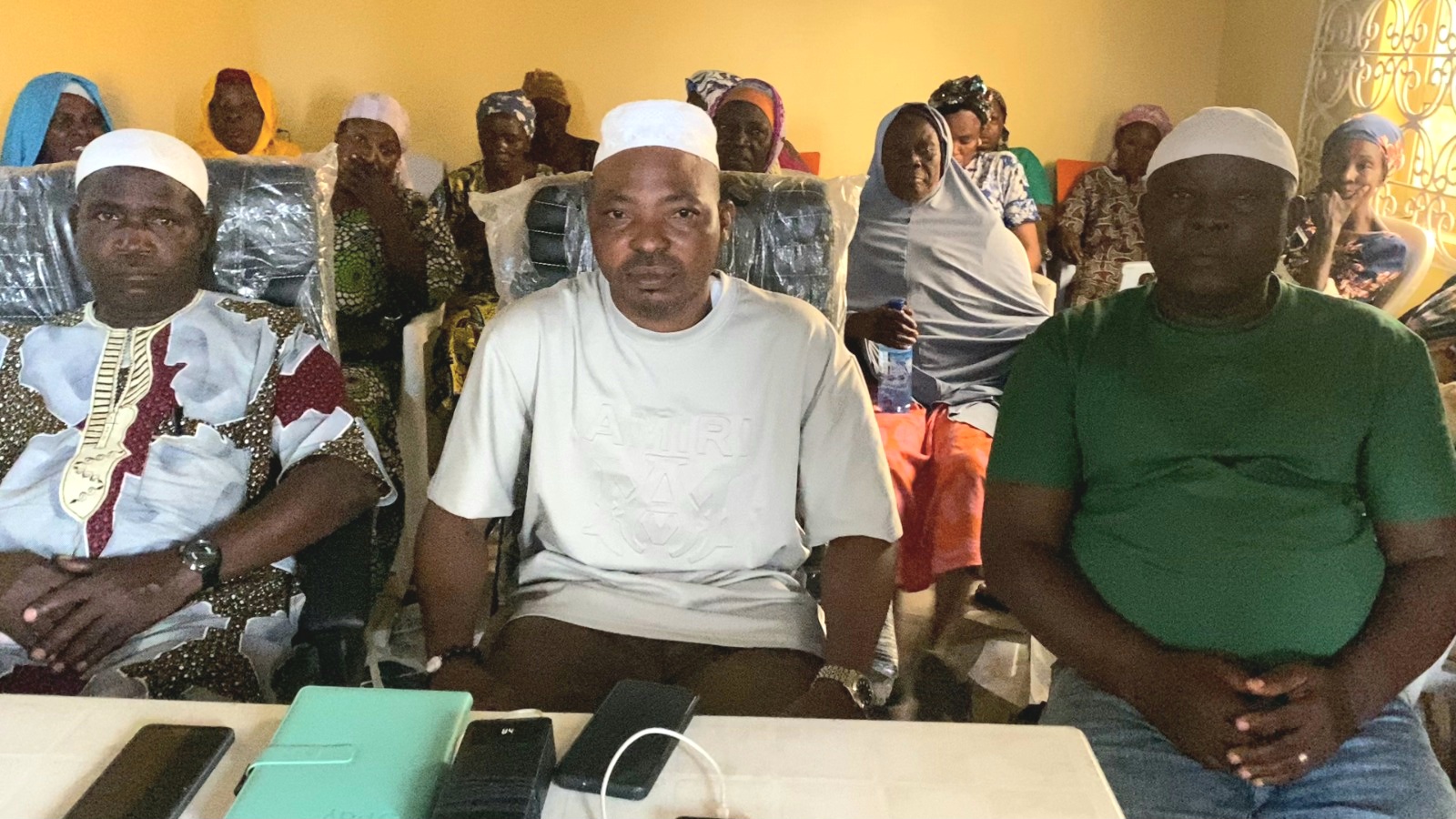
From Right: Chief Yussuf Saliu Idowu; Baálè of Igbosu, Chief Lateef Adams Oluwo; Baálè-elect Igbologun Community, Chief Saheed Ishola Kékeré Ogun; Baálè of Igboeseyore Community
Residents argue that Ọba Moruf Oyekunle Atanda Amodu-Tijani Olúwa, the Olú-Ìwà of Apapa Kingdom who hails from Apapa, has no historical or cultural connection to their land. His recent attempts to install a Baálè in Igbologun are viewed not only as illegitimate, but as a direct threat to the community’s autonomy and heritage.
Chief Lateef Adams Oluwo, Baálè-elect of Igbologun, delivered a powerful address at the briefing. He emphasized the community’s ancestral roots and the uninterrupted tradition of self-governance.
“Our forefathers have lived on this land for over five centuries. They installed Baálès by themselves, without interference. Ọba Olú-Ìwà of Apapa has no ancestral land, no shrine, no burial ground, and no traditional rights here,” he said. “We are law-abiding citizens, and we are calling on the government to protect us from political oppression.”
Chief Oluwo also highlighted the upcoming court hearings scheduled for September 18 and 24, 2025, before Honourable Justice Ogunsanya at Court 25, Ikeja High Court, where both the land dispute and Baálèship case will be heard.
Chief Imam Saka Oseni Olaribigbe, born in Igbologun in 1959, affirmed that no outsider has ever installed a Baálè in the community.
“Our elders have always governed this land. Ọba Olú-Ìwà of Apapa’s claim is baseless. He was once a friend to our forefathers, but friendship does not equal ownership,” he said. “From generation to generation, Baálès have been chosen from among our indigenous families. We will not allow this legacy to be erased.”
Chief Yussuf Saliu Idowu, Baálè of Igbosu, stressed the unity among the three communities. “We speak with one voice. Ọba Olú-Ìwà of Apapa and Oba Mobadenle Obalade Oyekan, the Onilado of Ilado, have no stake in our land. They are using political power to oppress us,” he said. “We took Ọba Olú-Ìwà to court in 1998, and he has refused to appear before the Honourable Court to this day.”
Chief Saheed Ishola Kékeré Ogun, Baálè of Igboeseyore, reinforced the claim, adding that Ọba Olú-Ìwà’s refusal to appear in court has stalled justice. “Neither Ọba Olú-Ìwà of Apapa nor Oba Mobadenle Obalade Oyekan has contributed anything to our communities. Their interference is unjustified,” he said. “They are trying to rewrite history with political influence, but we will not be silenced.”
Madam Awulat Oseni, a long-time resident of Igbologun, shared a deeply personal account of loss. “My husband died fighting for this land, believing the struggle would end. But it continues. Ọba Olú-Ìwà of Apapa keeps victimizing us,” she said. “We are tired. We want peace. We want justice.”
Mama Afsat Oseni Olaribigbe, another indigenous resident, described how peace was disrupted by the arrival of Ọba Olú-Ìwà and Oba Mobadenle Obalade Oyekan. “We have always voted under Amuwo Odofin Local Government. We are not under their rule. We are pleading for rescue from this slavery,” she said. “Let us live in peace again.”
Their testimonies reflect the emotional toll the dispute has taken, not just on leadership, but on families, elders, and the very soul of the community.
The community confirmed that the case remains active before Honourable Justice Ogunsanya, with hearings set for later this month. Attempts to install a “kangaroo Baálè” on September 6 were halted by the Lagos State Commissioner of Police, following urgent petitions from community leaders.
Residents expressed concern that political influence is being used to bypass legal processes and destabilize the region. They called for transparency, fairness, and respect for the rule of law.
The leaders and residents of Igbologun, Igboeseyore, and Igbosu communities jointly appealed to President Bola Ahmed Tinubu, Governor Babajide Olusola Sanwó-Olú, Inspector General of Police IGP Kayode Egbetokun, Attorney General of Lagos State, Ministry of Chieftaincy Affairs, and all relevant government agencies and human rights organizations.
“We are not violent people. We are voters, citizens, and custodians of history. We ask for justice, not imposition,” Chief Oluwo concluded.
As the court dates approach, tension remains high in the three communities. Residents are hopeful that the judiciary will uphold their rights and that the government will intervene to prevent further unrest.
For now, the people of Igbologun, Igboeseyore, and Igbosu remain united, rooted in history, guided by tradition, and determined to protect their land from external control.


